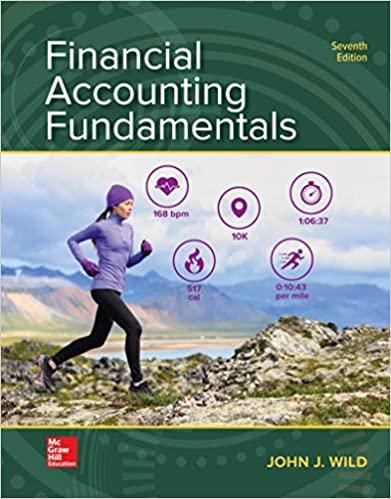Question
Instruction - Read 'Three Frameworks' of ethical decision making below. Select two frameworks and develop a flow chart explaining the ethical decision-making procedures of each
Instruction - Read 'Three Frameworks' of ethical decision making below. Select two frameworks and develop a flow chart explaining the ethical decision-making procedures of each framework.
Three Frameworks Based upon the three-part division of traditional normative ethical theories discussed above, it makes sense to suggest three broad frameworks to guide ethical decision making: The Consequentialist Framework; The Duty Framework; and the Virtue Framework.
While each of the three frameworks is useful for making ethical decisions, none is perfectotherwise the perfect theory would have driven the other imperfect theories from the field long ago. Knowing the advantages and disadvantages of the frameworks will be helpful in deciding which is most useful in approach the particular situation with which we are presented.
The Consequentialist Framework In the Consequentialist framework, we focus on the future effects of the possible courses of action, considering the people who will be directly or indirectly affected. We ask about what outcomes are desirable in a given situation, and consider ethical conduct to be whatever will achieve the best consequences. The person using the Consequences framework desires to produce the most good.
Among the advantages of this ethical framework is that focusing on the results of an action is a pragmatic approach. It helps in situations involving many people, some of whom may benefit from the action, while others may not. On the other hand, it is not always possible to predict the consequences of an action, so some actions that are expected to produce good consequences might actually end up harming people. Additionally, people sometimes react negatively to the use of compromise which is an inherent part of this approach, and they recoil from the implication that the end justifies the means. It also does not include a pronouncement that certain things are always wrong, as even the most heinous actions may result in a good outcome for some people, and this framework allows for these actions to then be ethical.
The Duty Framework In the Duty framework, we focus on the duties and obligations that we have in a given situation, and consider what ethical obligations we have and what things we should never do. Ethical conduct is defined by doing one's duties and doing the right thing, and the goal is performing the correct action.
This framework has the advantage of creating a system of rules that has consistent expectations of all people; if an action is ethically correct or a duty is required, it would apply to every person in a given situation. This even-handedness encourages treating everyone with equal dignity and respect.
This framework also focuses on following moral rules or duty regardless of outcome, so it allows for the possibility that one might have acted ethically, even if there is a bad result. Therefore, this framework works best in situations where there is a sense of obligation or in those in which we need to consider why duty or obligation mandates or forbids certain courses of action.
However, this framework also has its limitations. First, it can appear cold and impersonal, in that it might require actions which are known to produce harms, even though they are strictly in keeping with a particular moral rule. It also does not provide a way to determine which duty we should follow if we are presented with a situation in which two or more duties conflict. It can also be rigid in applying the notion of duty to everyone regardless of personal situation.
The Virtue Framework In the Virtue framework, we try to identify the character traits (either positive or negative) that might motivate us in a given situation. We are concerned with what kind of person we should be and what our actions indicate about our character. We define ethical behavior as whatever a virtuous person would do in the situation, and we seek to develop similar virtues.
Obviously, this framework is useful in situations that ask what sort of person one should be. As a way of making sense of the world, it allows for a wide range of behaviors to be called ethical, as there might be many different types of good character and many paths to developing it. Consequently, it takes into account all parts of human experience and their role in ethical deliberation, as it believes that all of one's experiences, emotions, and thoughts can influence the development of one's character.
Although this framework takes into account a variety of human experience, it also makes it more difficult to resolve disputes, as there can often be more disagreement about virtuous traits than ethical actions. Also, because the framework looks at character, it is not particularly good at helping someone to decide what actions to take in a given situation or determine the rules that would guide one's actions. Also, because it emphasizes the importance of role models and education to ethical behavior, it can sometimes merely reinforce current cultural norms as the standard of ethical behavior.
Source: Brown Universityhttps://www.brown.edu/academics/science-and-technology-studies/framework-making-ethical-decisions
Step by Step Solution
There are 3 Steps involved in it
Step: 1

Get Instant Access to Expert-Tailored Solutions
See step-by-step solutions with expert insights and AI powered tools for academic success
Step: 2

Step: 3

Ace Your Homework with AI
Get the answers you need in no time with our AI-driven, step-by-step assistance
Get Started


